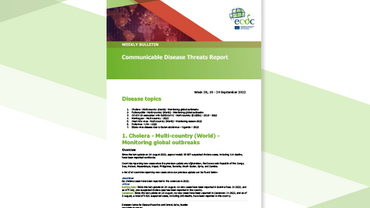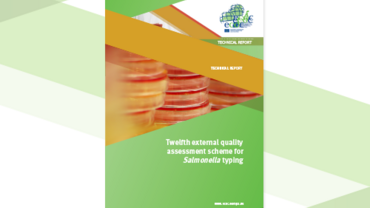External quality assurance scheme for diphtheria diagnostics 2010
This report presents the results of the 2010 external quality assurance (EQA) exercise that assessed the capabilities of diagnosing diphtheria in 28 reference laboratories across Europe. Participating centres were asked to complete a questionnaire and identify six simulated throat specimens.
Results overall were encouraging, showing both increased capacity and accuracy in diphtheria diagnosis since the previous EQA. However, some specific issues were identified as needing improvement, such as use of the Elak test for determining toxigenicity; false negative toxigenic results, as observed in this EQA, would impact negatively on the speed of public health action and patient management. Participants that did not perform above the average will be encouraged to attend the training workshop being held in the autumn of 2011.
Executive summary
The EQA results in this report identified the countries that require additional support and training. These countries will be invited to the second workshop scheduled in autumn 2011. Also planned is a second EQA distribution for laboratory diagnostics to measure any improvements made since the previous EQA.
This EQA report was done as part of the European Diphtheria Surveillance Network (EDSN) continuing the work of DIPNET, a dedicated surveillance network on diphtheria. EDSN, established by ECDC in March 2010, comprises nominated epidemiologists and laboratory experts for diphtheria from the 27 EU Member States and the three other EEA countries. Its purpose is to establish a system of expertise for the prevention of diphtheria and to strengthen and harmonise the laboratory capacity at national level.
Diphtheria is difficult to diagnose clinically, particularly in those countries where the disease is rarely seen. This disease is often confused with other conditions, such as severe streptococcal sore throat, Vincent’s angina, or glandular fever. Accurate microbiological diagnosis is crucial and complementary to clinical diagnosis. It is fundamental that EU Member States have the capacity and ability to undertake the procedures relating to the microbiological diagnosis of not only diphtheria but also the related infections caused by all potentially toxigenic strains of corynebacteria.






